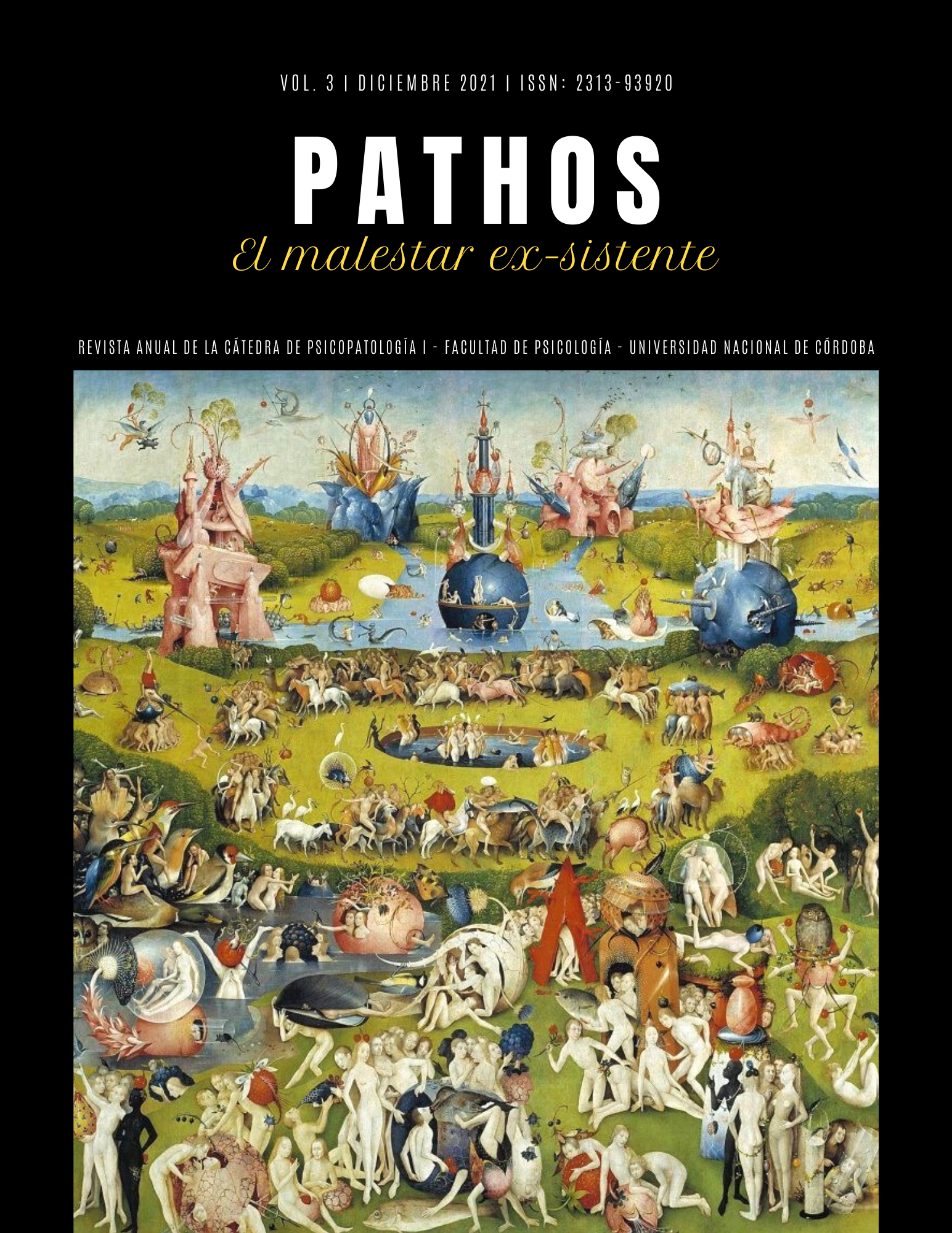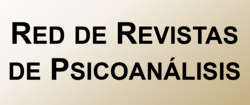Of intemperance and the iron law (research notes)
Keywords:
father's name, communities of enjoymen, marginal subjectivitiesAbstract
In the present work we address the phenomenon of "evaporation" of the father in whose scars the effects of a branched segregation can be found in a time in which another that does not exist has permeated, disappeared, its dominance was diluted to give way to: an Other that exists. The clinical problem that this entails is, in some way, the effort to try to detach, to detach from this time the practical consequences in the approach with subjects where the effects of this paternal resignation can be verified. This panorama leads us to ask ourselves, what status does psychic suffering have today? And in this sense we return to Lacan's perspective from Seminar 21: being named for, the social knot and the iron order imposed by maternal desire allows us theoretical approaches to understand subjects that, without suffering the clinical effects of foreclosure, however they suffer a vital catastrophe.
Downloads
References
Borges, J. (1989). Al hijo, enObra Poética. Buenos Aires: Emecé.
Faraoni y Vaschetto. (2020). Lo heterogéneo. Lapso (5).
Foucault, M. (2003). Historia de la sexualidad 2, El uso de los placeres. Buenos Aires: Siglo XXI.
Indart, J. (2019). Sobre el ideal y el ser nombrado para. Buenos Aires: UNSAM.
Miller, J. (2016). Un Otro que no existe, en Un esfuerzo de poesía. Buenos Aires: Paidós.
Milner, J. (1997). Lo triple del placer. Buenos Aires: Del cifrado.
Lacan, J. (2016 [1968]). Nota sobre el padre. Revista Lacaniana, 11 (20).
Lacan, J. (2006 [1975-1976]). El Seminario, libro 23 El Sinthome. Buenos Aires: Paidós.
Lacan, J. (2008 [1958]). La dirección de la cura y los principios de su poder, en Escritos II.Buenos Aires: Siglo XXI.
Lacan, J. (2008 [1960]). Subversión del sujeto y dialéctica del deseo, en Escritos II. Buenos Aires: Siglo XXI.
Lacan, J. (2008 [1953]). Variante de la cura tipo, en Escritos II. Buenos Aires: Siglo XXI.
Lacan, J. (1996 [1953]). El mito individual del neurótico, en Intervenciones y textos I. Buenos Aires: Manantial.
Lacan, J. (1993 [1955-1956]). El Seminario, libro 3 Las Psicosis. Buenos Aires: Paidós.
Lacan, J. (1984 [1964-1965]). El seminario, libro 11 Los cuatro conceptos fundamentales del psicoanálisis. Buenos Aires: Paidós.
Lacan, J. (1978 [1938]). La familia. Buenos Aires: Agronauta.
Lacan, J. (1974). Seminario, Les non-dupes errant. Inédito.
Laurant y Miller. (2001). El Otro que no existe y sus comités de ética. Buenos Aires: Paidós.
Laplantine, F. (1999). Antropología de la enfermedad. Buenos Aires: Del Sol.
Le Blanc, G. (2010). Las enfermedades del hombre normal. Buenos Aires: Nueva Visión.
Rojeve, A. (2004). La noción de autoridad. Buenos Aires: Nueva Visión.
Regnault, F. (1995). El arte según Lacan y otras conferencias. Barcelona: Atuel-Eolia.
Tort, M. (2008). El fin del dogma paterno. Buenos Aires: Paidós.
Downloads
Published
Issue
Section
License
Copyright (c) 2021 Emilio Vaschetto

This work is licensed under a Creative Commons Attribution-NonCommercial-ShareAlike 4.0 International License.
Attribution - Non-Commercial - Share Alike (by-nc-sa): No commercial use of the original work or any derivative works is permitted, distribution of which must be under a license equal to that governing the original work.










